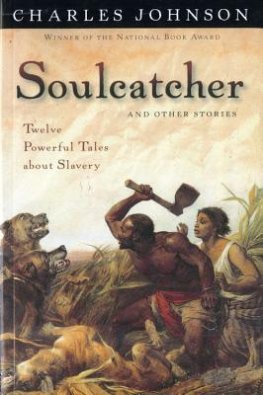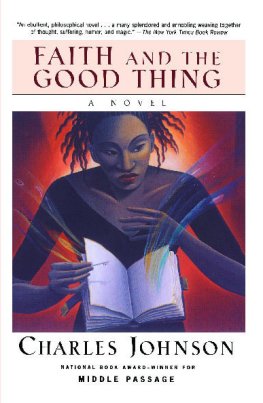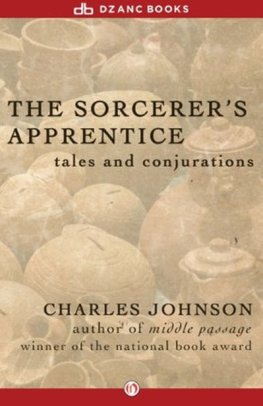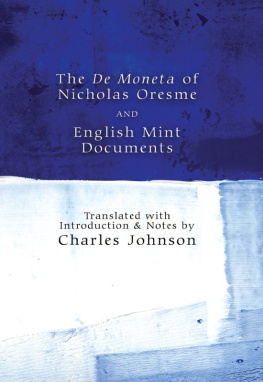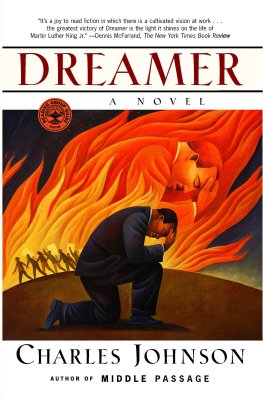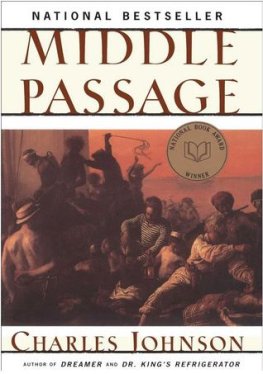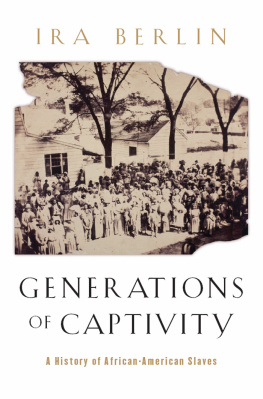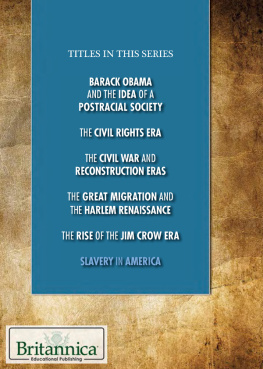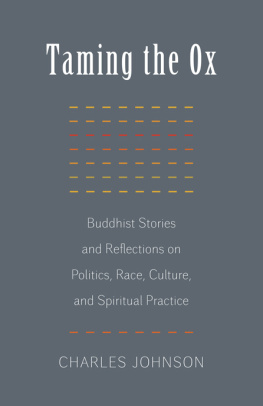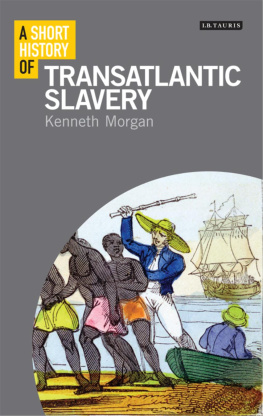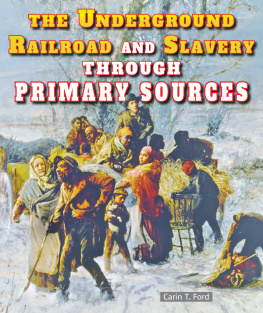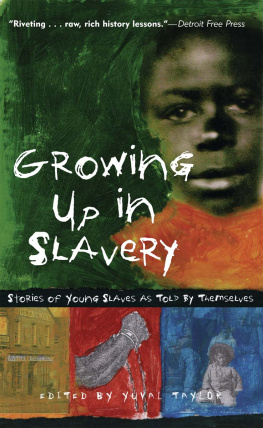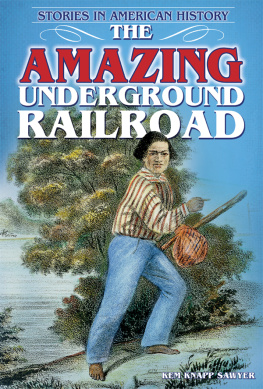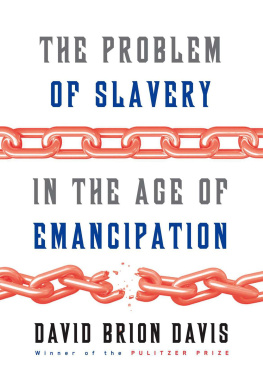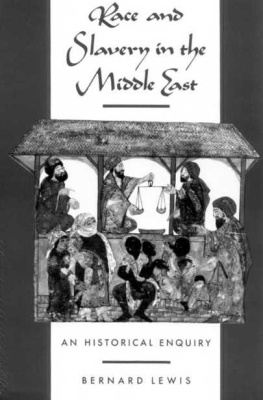Charles Johnson
Soulcatcher: And other stories
IN 1969, THE YEAR the first large lecture classes in Black Studies premiered at the Illinois college I attended, African American faculty were so scarce on campus that black graduate students from different fields volunteered to teach these courses, with undergraduates assisting them as leaders for small, weekly discussion groups. I was one of the latter. Reaching back, I recall cutting most of my own classes spring term in order to prepare for my discussion group by reading for eight hours a day John Hope Franklin's massive masterpiece, From Slavery to Freedom, and dozens of other texts (by black authors) on sociology, history, and literature. In the late 1960s, these works were no where to be found in the canon or curriculum at integrated colleges, secondary or elementary schools. In the universe of academia, they were "dark matter," invisible to the eye. And, yes, I was sometimes tempted to condemn the white teachers and professors I had had since the 1950s for not placing this history before me, but I realize now that they had not been taught this material they never knew what they didn't know, and thus had nothing to transmit to the children of color who filled their classes when Brown v Board of Education went into effect after 1954 and who hungered for knowledge about themselves.
What I learned as an autodidact, as an undergraduate teaching himself in those dizzying, early days of Black Studies, was that American history on every level imaginable political, economic, and cultural was simply inconceivable without the presence of black people on this continent from the time of the seventeenth-century colonies.
So, while I have been a voracious student, and sometimes a teacher, of black American history and literature for over thirty years, I was (and continue to be) astonished by the wealth of research and perception-altering revelations about this country's past contained in the PBS series Africans in America: America's Journey through Slavery and its beautiful companion book, which I had the privilege of co-authoring with Patricia Smith and the WGBH Research Team.
However, in late 1996 when producer Orlando Bagwell approached me about writing twelve original short stories to dramatize the companion book's history, I was initially hesitant. Why? At that time, I was a year away from completing my fourth novel, Dreamer, a complex, multileveled philosophical fiction about Martin Luther King, Jr.'s, 1966 Chicago campaign (and his fictitious double who appears during a riot). I had already devoted seven years of study to this difficult and endlessly demanding project The thought of committing my time and energy to yet another book that involved both scholarship and unflagging imagination made me feel weak in my knees. But, happily, Bagwell, a producer I've admired since the early 1980s for his professionalism and outstanding character, persisted. He and his team of filmmakers, who devoted a decade to bringing Africans in America to the screen, urged me again by phone, fax, and face-time at a Seattle restaurant to take on this unusual project, since I'd already traversed slavery's history in my third novel Middle Passage (a fiction that demanded seventeen years of research on the slave trade and another six on the vast lore of the sea). I fidgeted. I flinched, but at the end of the day how could I say no? I'd come to know American life in the eighteenth and nineteenth centuries while writing my second novel, Oxherding Tale (1982), and through numerous historical teleplays for PBS from 1977 through the '80s. Finally, I agreed, though I had absolutely no idea exactly what stories I would write.
Early in 1997 we all met at WGBH Bagwell, Patricia Smith, Steve Fayer, who wrote the scripts for the television series (and was co-author of Prices of Freedom, the companion book for the award-winning PBS series, Eyes on the Prize), and those responsible for auctioning the proposed companion book. From the very first we agreed that, unlike some texts spun-off from TV series, this book would best serve readers (and viewers) if it could stand on its own as a unique publishing event. On that cold January day in Boston my only contribution to our discussion was to express my desire to generously deploy a variety of literary forms for the twelve stories. I wanted to create, if possible, a diversity of narrative styles that would make each story aesthetically vivid; I dreamed of dramatizing the history covered by the series, of course, but I also wanted to bring a specific technical challenge to every one of the tales, regardless of their content.
But the long and short of it was that I still had no idea what I would write.
For months, as I worked through spring and summer to complete my fourth novel, huge boxes of research compiled by WGBH's Research Team arrived on my doorstep. That fall, when I finished Dreamer and finally could pore over these reams of black-bound books and the drafts of Smith's poetically written chapters, story possibilities began to percolate in my imagination. Here, in these boxes crammed with primary and secondary source material, I was introduced to facts and historical figures essential for deepening our understanding of America's past and present; the frisson I experienced being no less than the delicious shock of discovery I'd known in the '60s. The research for the PBS series treated major historical moments the Middle Passage, the Revolutionary War, abolitionism, and the circumstances that led to the Civil War but in doing so it also unveiled the fascinating and often ambiguous anecdotes, ironies, back-stories, and paradoxes that inevitably arise when human beings for centuries live within an execrable social arrangement they know is unjust and fragile and ultimately doomed. Here, in the historical record, was marvelous grist for the mill of fiction: the slaves who fought in greater numbers for the Crown rather than for the Continental Army, in a desperate gamble for their freedom; the frightening (and wickedly funny) dilemma of Martha Washington after her husband George dies; the plague that descended upon Richard Allen's Philadelphia in 1793; the racist alarm Thomas Jefferson felt over Toussaint L'Ouverture's victory in Haiti. On and on, the material gathered by the research team made history I fancied myself to be familiar with suddenly unfamiliar and, therefore, exciting.
All during the month of January, 1998, I did nothing but write, day and night. I cannot remember anything of that month in my life because I read no newspapers, books, or magazines; I put my everyday existence on hold, apologized to my wife, children, and friends for being physically present but psychically absent (I fear I've lived most of my life this way, what with dovetailing creative projects for the last thirty-five years), and retreated from this world to dwell every waking moment for thirty days in the unfolding world of my ancestors. In short, I was in heaven for a whole month.
With that sort of concentration, remarkably like Buddhist dharana (focus), the stories flowed from me in a dreamlike rush. Each possessed its own particular form. "The Transmission," which was the first fiction I wrote, employed the most conventional of storytelling strategies: authorial omniscience (third-person-limited) to depict the harrowing journey of the African boy Malawi to the New World. "Confession" shaped itself as a third-person monologue (until the very end, only the slave Tiberius speaks). "Poetry and Politics" is a single scene entirely in dialogue without a line of description, because I heard rather than saw this exchange between Phyllis Wheatley and her mistress. "A Soldier for the Crown" is cast in second person, "Martha's Dilemma" in traditional first person, and "The Plague" rendered as fictitious diary entries by Rev. Richard Allen. An epistolary approach felt best for "A Report from St Dominique," and in "The People Speak" I could not resist (being an old journalist) the mock-newspaper article as the story's vehicle. By contrast, "Soulcatcher" uses

